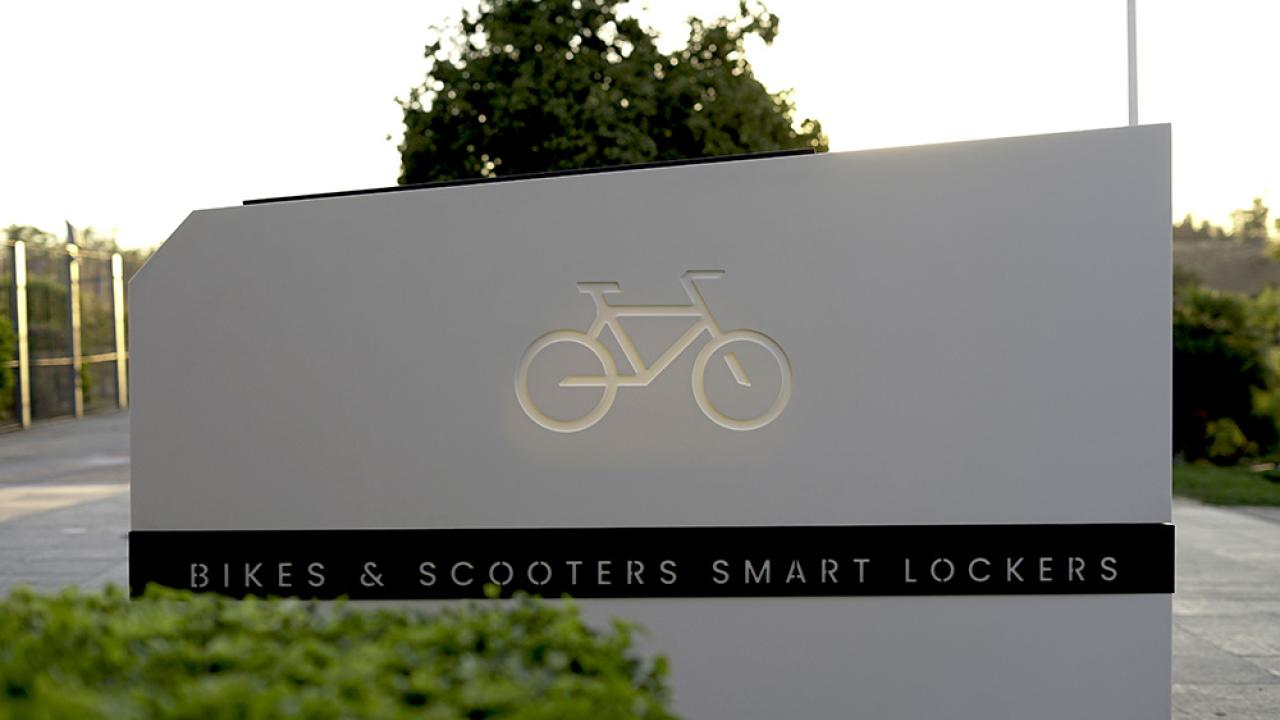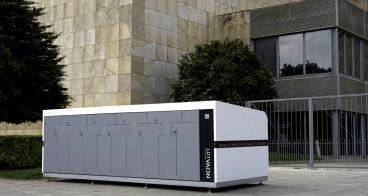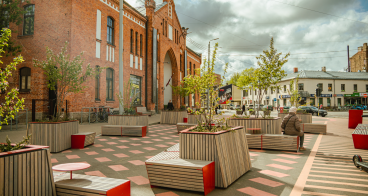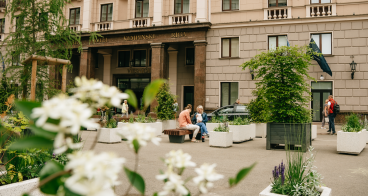Riga's path to promote active transport for the first and last mile
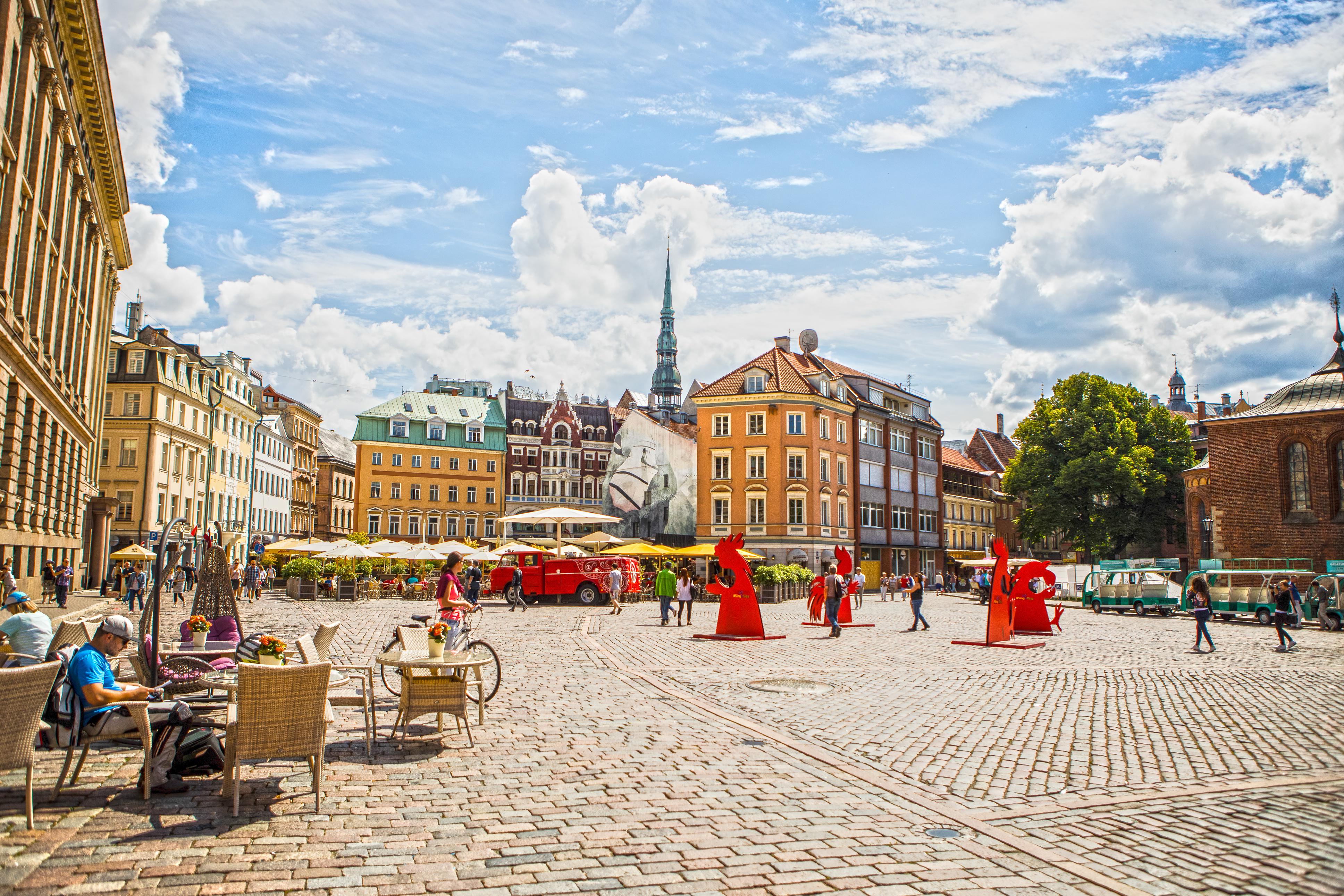
The Challenge
In Riga’s current context, most residents continue to rely on private cars for daily commutes. Private cars remain the most used mode of transport for several reasons, including the insufficient public transport network to meet the demands of Riga's growing population and the needs of commuters traveling from distant areas to the city centre. In fact, from the 86,000 people that commute into Riga’s city centre every day, 42% use public transport and only 3.45% use a bicycle (Riga Commuting Master Plan, 2019).
As a result, Riga continues to experience considerable congestion and substantial noise and air pollution, which hinders the goal set out by Riga City Council in its Development Strategy 2021-27 to reduce carbon emission by 22%, and overall moves away from the wider EU objective to promote more liveable cities.
In addition, there are specific active mobility issues that detract residents from using such types of transport. For example, there is little work done in road infrastructure to guarantee safe journeys for cyclists, resulting in cyclists often using the sidewalk due to a lack of cycling lanes. Moreover, residents often complain about theft and vandalism, which results in users being reluctant to use a bike for fear of it being stolen.
The Solution
Given Riga’s challenge, the Riga City Council and NOVALITY have teamed up to deliver a smart micromobility solution that serves both as a parking facility and as storage lockers that can store both bicycles and scooters and personal belongings.
The facility also serves as a charging point for electric bicycles and e-scooters, which addresses users' request of delivering more charging points.
The parking facility, powered by solar panels, allows for it to be located anywhere, as it does not require electric power operating at all times. The locker design was also developed to maximise its space and have as little impact as possible on the surrounding environment.
Additionally, users can easily know whether there is locker capacity by using the associated app, which also allows to pre-book a space. This technology has proved to be efficient for users that leave their bicycles overnight and want to keep it in a safe location.
Lastly, the data compiled through NOVALITY’s app and the lockers’ usage could be of great use to the City Council for enhanced data management, being able to provide the local authority with a better understanding of residents' mobility flows and therefore where future lockers may be adequately located. NOVALITY has also expressed that this solution could become integrated into the public transport network with the same tariffs applied, which can promote multimodality and an easier experience.
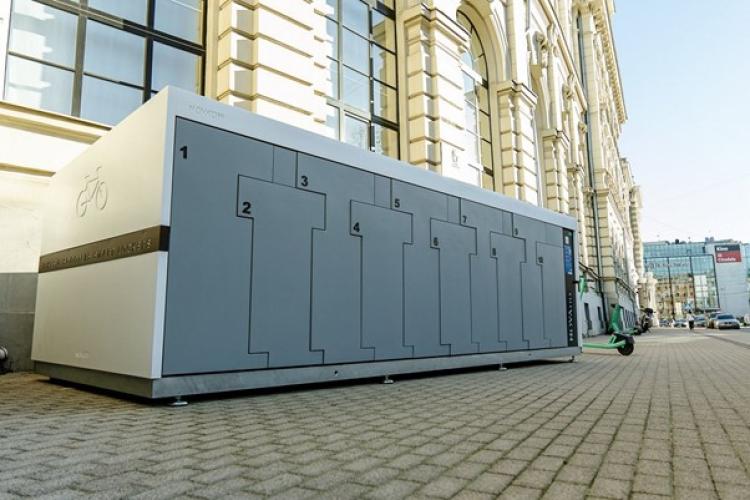
Making an impact
Overall, with NOVALITY locker users, Riga is making its way toward greener mobility and lower levels of congestion, which is helping to make the city centre a more liveable space.
Apart from decreasing congestion and pollution, the parking facility’s safe storage element addresses other issues pertinent to the Riga context, including safer parking for bikes to avoid theft and allow for overnight or long-term parking, better urban space utilisation, and ease of implementation given its self-sustenance through the solar panels.
Other cities such as Málaga and Fuenlabrada in Spain have adopted Novality's secure bike and personal mobility vehicles parking systems. These cities recently installed Novality's app-operated parking facilities, eliminating the need for keys. Located near metro and train stations, these facilities promote intermodal commuting, making the first and last mile more sustainable. Both cities aim to encourage their citizens to use public transport and active mobility modes.
In Málaga, 40 parking facilities are currently being displayed. The Consul station parking facility accommodates 20 bikes or personal mobility vehicles, while the Ciudad de la Justicia and Palacio de los Deportes stations each offer 10 spaces. The system operates 24/7 throughout the year and is managed via an app. Currently, the service is free for those using a public transport ticket.
In Fuenlabrada, 17 parking facilities with 270 parking spots have been already installed in the city.
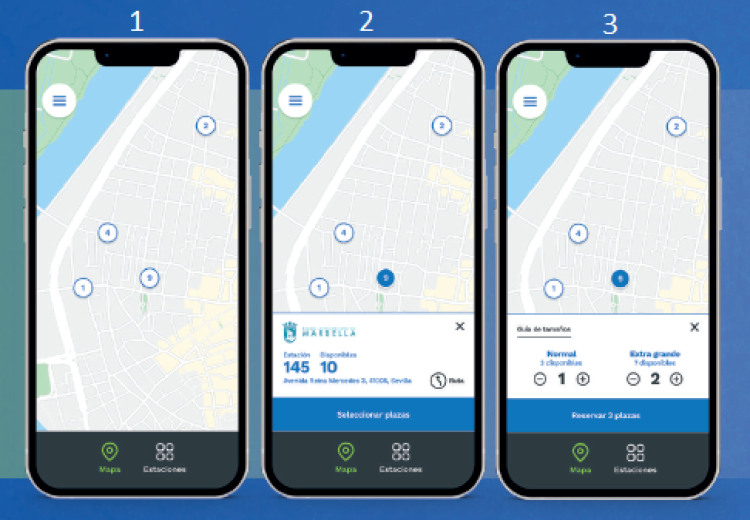
Lessons learnt
During the Riga pilot, a survey was conducted. Through the feedback received, the positive outcomes of Novality’s lockers were made evident, with further lessons learnt that could help improve this solution further.
Out of the different responses, certain topics stood out, such as that an intuitive process that facilitates app registration, using the local language and an attractive design of user interfaces can boost registrations.
Additionally, if this solution becomes integrated into the wider public transport network, the NOVALITY parking facility is likely to see an increase in users. There is a clear opportunity to promote multimodality by situating these facilities near transport hubs. This can encourage residents to use the train or bus for their main commute while relying on bicycles for the first or last mile of their journey. This approach is already proving successful in Málaga and Fuenlabrada.
Another lesson is the possibility to partner with transport companies or even universities and housing complexes to locate these lockers in tactical locations with large movements of people, and even consider subsidising so the facility is free or low-cost to promote its usage.
A final lesson learnt is the need for this facility to highlight the benefits it has over on-street bicycle parking, which include safe parking, a charging spot, the possibility to pre-book, and a guarantee that there is parking availability through the app.



